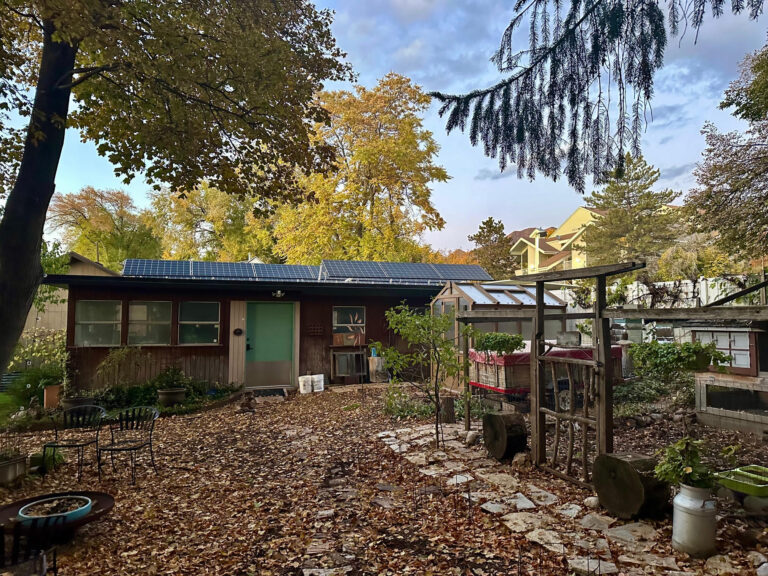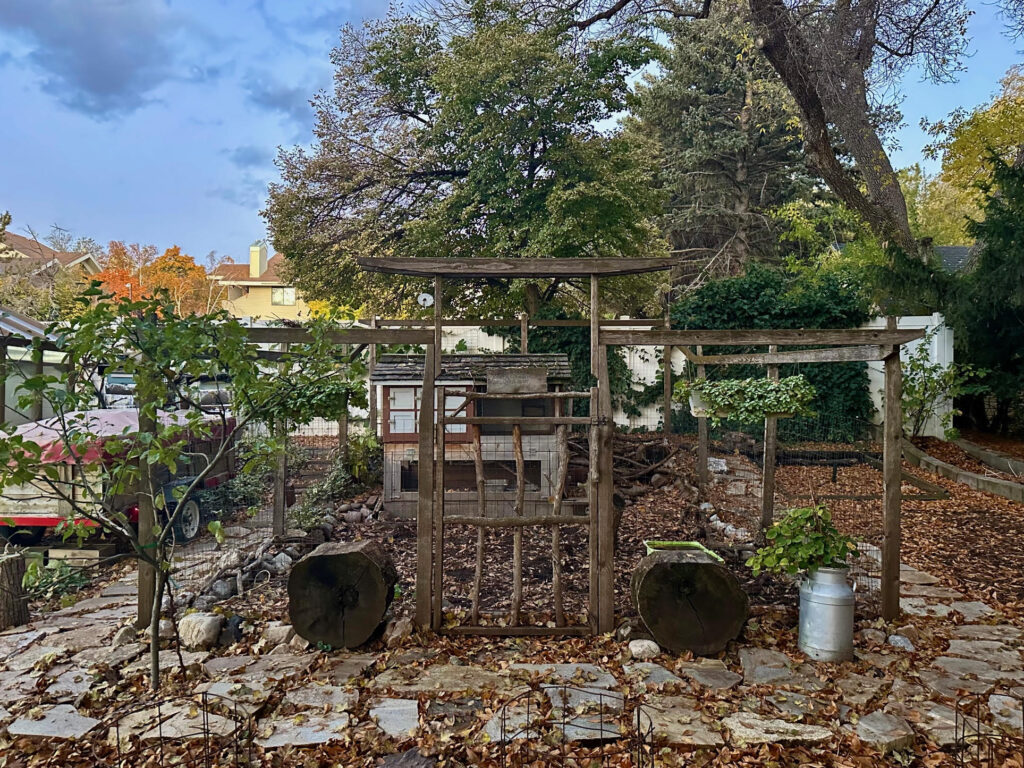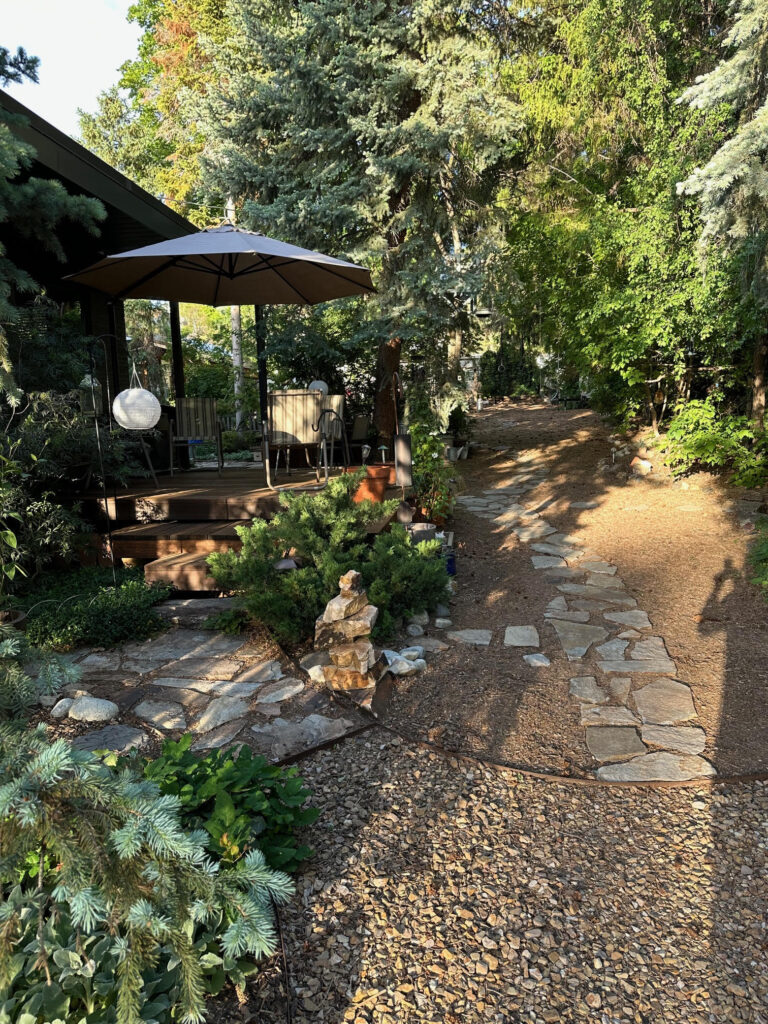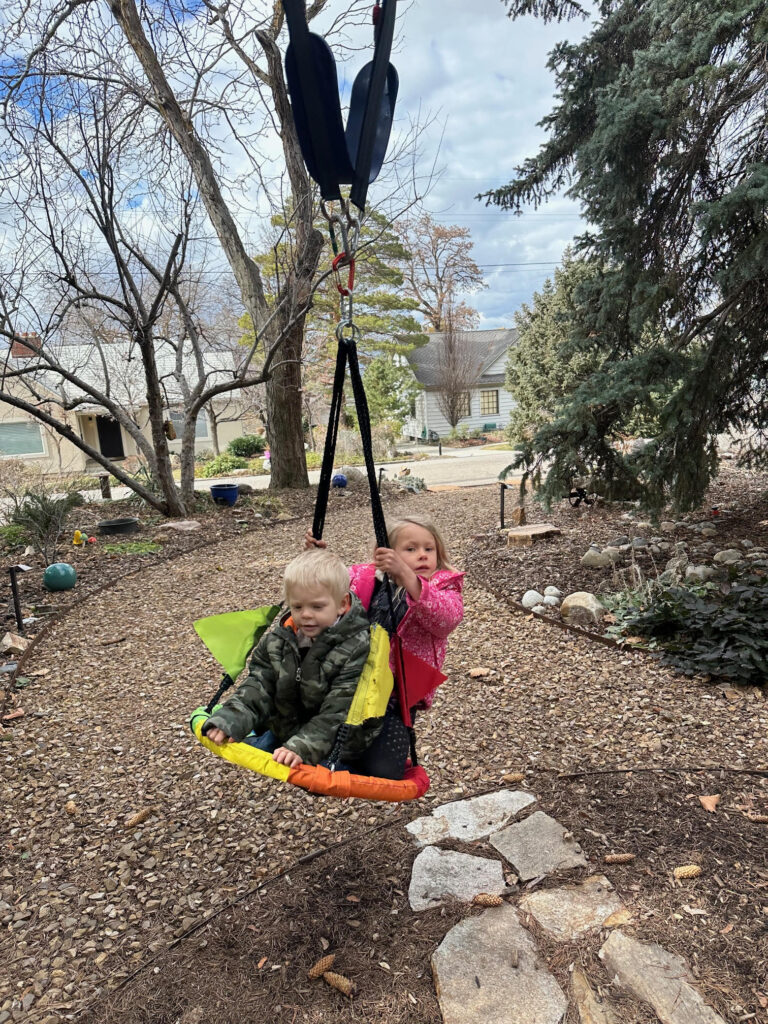Joy for Every Form of Life
By Jay Griffith
“Healing the Earth can feel overwhelming, but every small action contributes to a larger vision of recovery.” – Robin Wall Kimmerer
In the Beginning
Maybe my inclination to creation care was awakened by growing up in a little logging-fishing town on the southern Oregon coast in a single wide trailer in a trailer park. Maybe having less made me more prone to consider scant resources, as did goodly parents who lived through the Great Depression and WWII. Thrift, making do, and being grateful for creation were knitted into their very beings. Their conversion to a church that espoused similar values, earned from the hardship of poverty and hard work, surely helped reinforce such values.
Maybe it was the couple of years I lived on an LDS church-owned cattle ranch in Henefer, UT as a 8-10- year-old, working with nature—land and animals, irrigation water and shovel, time and thought.
And then there were and are the teachings of our church that helped give me reason for the hope and affection I have for this evolutionary marvel by God & Co.
We have good cause in our theology to care for creation. A theology that subscribes to all truth regardless of source. We don’t need to slap a label on it and call it ours. We can just be happy it is from God and that all are alike unto our Heavenly Parents. Reading the autobiography of Mahatma Gandhi in my twenties gave me even more reasons to care for creation and recognize that other species are more alike unto us and God than we want to see or admit. This propelled me into eating meat sparingly and eventually I became a vegetarian. It also caused me hear the creation story in the temple with new insight:
On the second day of creation, Elohim commands Jehovah and Michael to “form mountains and hills, great rivers and small streams to beautify and give variety to the face of the earth.” A profoundly simple purpose—beauty and variety. Not merely for our survival or wealth building.
On the fifth day, after every living, creeping, and growing thing is made—everything but us—Elohim asks Jehovah and Michael to command each cadre of remarkable creatures to “multiply in their respective elements, each after its kind, that every form of life may fill the measure of its creation, and have joy therein.”
That every form of life might have joy. Not just me and my species. Gandhi’s religious tradition, of living with great respect and care for all lives, made me reflect with more humility and concern for how other lives are treated by me and my kind. I turned to vegetarianism in part because our industrial food complex treats our fellow creatures as mere commodities, with little or no concern for their pain and discomfort, let alone joy.
Since then, I have learned about the additional benefits to the environment, water consumption, and our health that comes from eating meat sparingly. Because the true cost of most of our food is subsidized by the government to large corporations, eating organic, whole and less processed local foods is more expensive. In fact, in many cases it does feel like creation care costs more. My crushed walnut shell cat litter is significantly more expensive than the mined clay-based litter. My non-plastic earth-friendly deodorant is more expensive. Likely, the washing detergent and dryer sheets cost more per load. I could go on.
Yet the cost of not caring for our earth—or our own health—is like racking up our credit card. We are enjoying what we want for the convenience of the moment, but are paying a high interest rate on top of having the balance eventually and painfully come due. We are seeing that with climate change. It’s not a healthy or sustainable way to live. And it is often harming the poorest across the globe.
Wait! There's More.
Here’s a quick rundown of other things my wife and I have done over the years that have been useful in our shared care for our earthly home. Maybe something here will also be useful to you. I’m sure some will seem a bit eccentric. That sounds about right.
9 years ago we bought a used plugin Prius that is now 13 years old and still going strong.
In 2018 my son helped me install solar panels on my roof. I had been told that my home was borderline for solar to be cost-effective due to an abundance of shade. But a friend’s encouragement to focus on the environmental benefit, and the cost-saving measure of doing it ourselves, got me there. Now, getting an electric bill that averages $15 a month has made me feel like it has been a great investment on both counts.

Over a decade ago I began raising hens for eggs. It wasn’t legal in the unincorporated area of the county so I worked with my representatives and others to help make it so. Chickens are also great for utilizing food scraps. What doesn’t go to them goes to compost, a miraculous process that turns “garbage” into dirt.
Since not all food goes to compost we try hard not to waste by making larger meals to eat over several days. And since we’re talking food—for some six years now I’ve kept my eating window to 6 hours most every day. I break-fast around 1:00 pm and finish dinner about 7:00. Most every day I eat a “mush” I create out of organic seeds and grains that I never get tired of. Before intermittent fasting, I felt like a compulsive eater, now I feel great and less hungry. And I love the time and resources I save. Jane, my wife does 12-16 hours and likes it too.
On the other end—not flushing the toilet every time we pee is helpful (and we have a low flow toilet of course!) Jane and I don’t flush before we go to bed without seeing if the other needs to go first. And then we don’t flush in the middle of the night. I also take shorter and fewer showers (No one has complained. Yet.) Often cold ones—another reason they are super short and less frequent. Get wet, soap up, rinse, shiver, and repeat. Save water, Save energy. Get exhilarated.

Speaking of washing, I rarely wear any of my clothes just once—unless they smell or are soiled. Many, if not most, of my clothes are second-hand. And I hold on to them for a long time. Some, so long, they may just come back in style.
One more water thing: when we bought our fixer-upper some 33 years ago, there was a lot of lawn. We are now down to one small patch of lawn for dogs and grandkids to enjoy. I’ve attractively xeriscaped everything else. Fortunately, we have a lot of trees. Most require water during this endless drought. But they give back in ways grass can’t, so I feel it’s justified.


We keep the thermostat set high in summer and low in winter. We use fans in the summer and open our windows at night to take advantage of the cooler temps. In the winter, we wear warm clothes, sometimes coats, and use small portable heaters when needed in the space we are occupying.
Finally, for over two decades, I biked to work downtown and rode the bus home. It was a sweet deal, saving me from battling traffic and giving me precious time to read. For some years now, I’ve worked out of my home office. But I still ride my bike to the pool each week, plus doctor and dentist appointments and often other engagements.
There are other things I could highlight, but I’m already way over my word count. I know many of you are doing all that I’ve mentioned and more. I find it fun to explore ways to conserve and care. So many folks inspire me. Hanging with friends who also care about creation helps me be more motivated to take the extra time and sometimes extra money to do the better thing for our beautiful planet. I appreciate you being those kind of people.
Jay Griffith is curious about most everything. He is passionate about being in and revering creation, alleviating suffering, and living artfully. Professionally, Jay is the designer/art director/janitor for his company, Blue Cairn Media. For the past 9 years, he has served in the Parley’s Creek Swahili Refugee Branch. In 2013 Jay Griffith co-founded and continues to facilitate the monthly discussion group, ThinkAgain-Faith Again. At least once a year, he has a topic related to the environment. He is an advisory board member of Faith Matters. Husband to one good wife, Jane. Father to 3 amazing and unique grown children. Papa to two delightful grand kiddos. Trail running companion to one sweet rescue dog. Chicken herder to 3 hens, sometimes a laying.

